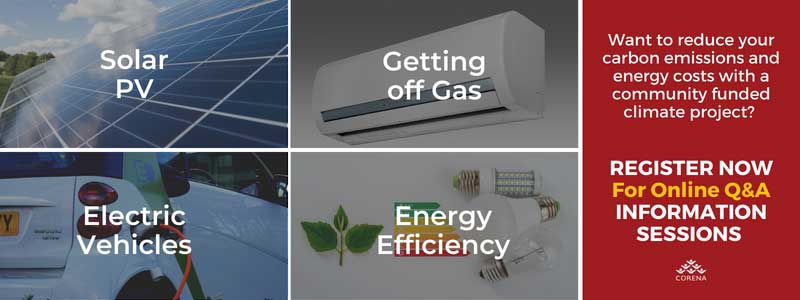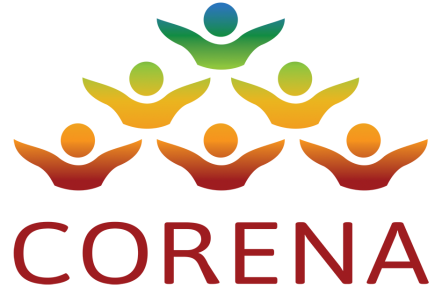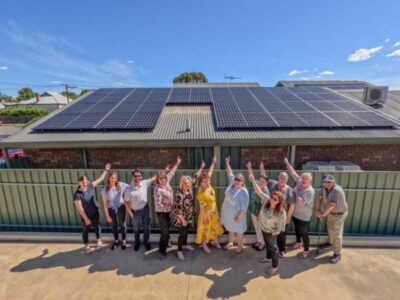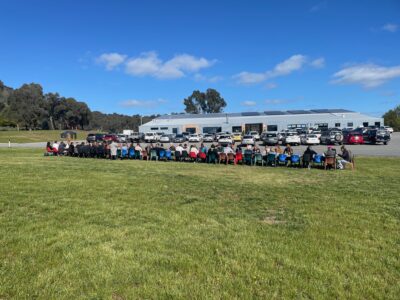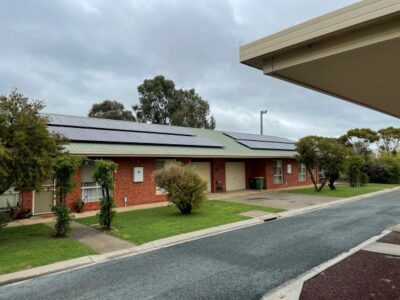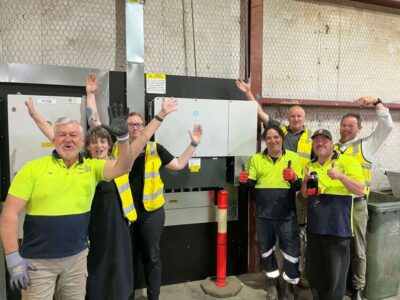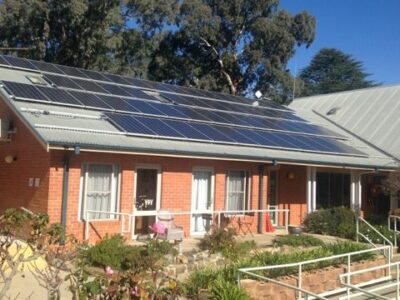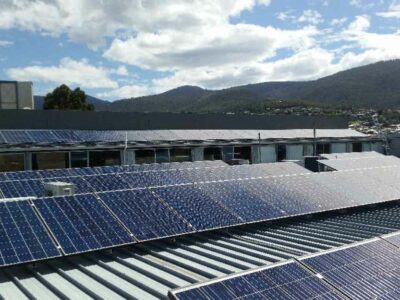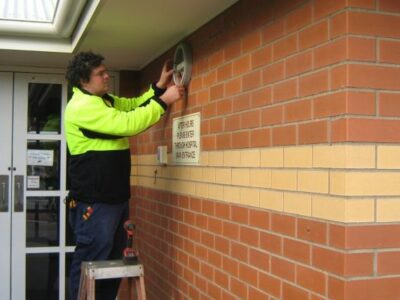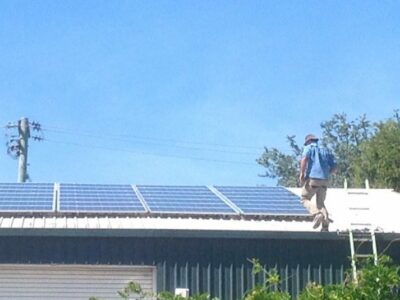Imagine enhancing the safety, comfort, and well-being of the individuals you serve, while simultaneously reducing costs and demonstrating environmental leadership. For disability and social services organisations, embracing renewable energy and sustainability initiatives is a powerful way to achieve these vital goals. From ensuring power reliability for equipment with solar and battery storage to creating healthier, more comfortable living environments through energy efficiency and heat pumps, these projects directly translate into improved client care and significant operational savings.
CORENA understands the unique needs and resource constraints of the community sector. We offer tailored technical support and interest-free funding to empower your organisation to implement transformative projects in renewable energy, energy efficiency, and climate emission reduction. By partnering with CORENA, you can redirect valuable funds from utility bills towards vital client services, strengthen your resilience against power outages, and proudly showcase your commitment to a sustainable and inclusive future.
Solar Panels for Disability & Social Services Organisations
Installing solar photovoltaic (PV) systems on the rooftops of residential care facilities, day program centres, administrative offices, and community hubs operated by disability and social service organisations. This can be scaled based on the size and energy needs of each facility.
Specific Benefits:
- Reduced Operational Costs: Lower electricity bills can free up crucial funding for direct client services, staffing, and program enhancements. For example, large energy consuming facilities such as manufacturing disability social enterprises can significantly reduce their running costs. Project 46. Merriwa Industries and Project 14. Tastex are two examples of manufacturing social enterprises that have significantly cut their energy costs.
- Enhanced Financial Sustainability: Predictable and lower energy expenses contribute to the long-term financial stability of often resource-constrained non-profit organisations.
- Demonstration of Social and Environmental Responsibility: Adopting clean energy showcases the organisation’s commitment to both the well-being of the community and environmental sustainability.
Learn more in Solar Panels – A Guide For Non Profits
Renewable Energy Batteries for Disability & Social Services Organisations
Integrating battery storage with solar PV systems, particularly in residential facilities where continuous power is important for medical equipment, environmental controls (like health equipment and air conditioning for clients ), and communication systems.
Specific Benefits:
- Ensured Power Reliability & Safety: Provide crucial backup power during grid outages, safeguarding the health and well-being of individuals who rely on electricity for certain medical devices, communication or environmental comfort.
- Optimised Energy Use & Cost Savings: Store excess solar energy for use during peak demand periods or at night, further reducing reliance on grid electricity and lowering energy costs.
- Potential for Participation in Virtual Power Plants: Larger facilities with battery storage might be able to participate in demand response programs, generating revenue that can be reinvested in services. Project 60. Youth Options is CORENA’s first project that is using a Virtual Power Plant to do this.
Learn more in Solar & Renewable Energy Batteries: Why, When & How To Use Them
Energy Efficiency Initiatives for Disability & Social Services Organisations
Implementing a range of measures across all facilities:
- LED Lighting Retrofits: Replacing inefficient lighting with energy-efficient LEDs to improve visibility and reduce energy consumption in residential areas, program spaces, and offices.
- Smart HVAC Monitoring and Controls: Installing programmable thermostats and zoning systems to optimise heating and cooling based on occupancy and individual needs, ensuring comfortable environments for diverse client groups. Project 50. Anglicare SA have installed energy monitors in community housing which allows residents to take control of their own energy costs.
- Building Envelope Upgrades: Improving insulation in walls, roofs, and windows to maintain stable indoor temperatures and reduce energy waste, particularly important for vulnerable community housing residents who may be sensitive to heat stress.
- Water Efficiency Measures: Installing low-flow fixtures in bathrooms and kitchens to conserve water and reduce associated energy costs for hot water.
- Energy-Efficient Appliances: Utilising energy efficient appliances in kitchens and laundry areas of residential facilities.
Specific Benefits:
- Improved Comfort & Well-being of Clients: Consistent and comfortable indoor temperatures, along with appropriate lighting, can significantly enhance the quality of life for individuals with disabilities and specific needs.
- Reduced Utility Bills: Lower energy and water consumption frees up financial resources for direct client care and service delivery.
- More Sustainable Operations: Reducing the organisation’s environmental footprint aligns with broader social responsibility goals.
Learn more in Energy Efficiency Audit Guide For Non Profits
Energy-Efficient Hot Water Systems for Disability & Social Services Organisations
Installing heat pump hot water systems in residential care homes, day program centres with showering facilities, and any buildings with significant hot water demands (e.g., for hydrotherapy pools, if applicable).
Specific Benefits:
- Lower Hot Water Costs: Reduce the substantial energy expenses associated with heating water for hygiene, laundry, and specific therapies.
- Reliable Hot Water Supply: Ensure a consistent and cost-effective source of hot water for the comfort and needs of clients.
- Environmental Benefits: Decrease reliance on fossil fuels or electricity for water heating.
Learn more in Green & Energy Efficient Water Heating Guide For Non Profits
Heat Pumps for Disability & Social Services Organisations
Replacing less efficient heating and cooling systems with energy-efficient heat pumps in residential facilities, therapy rooms, and common areas. Zoned systems can cater to the diverse temperature preferences of individuals.
Specific Benefits:
- Efficient & Flexible Climate Control: Provide comfortable and consistent temperatures year-round with lower energy consumption, crucial for individuals with varying temperature sensitivities or medical conditions. This is particularly important for vulnerable community housing residents who may be sensitive to heat stress.
- Improved Air Quality: Many heat pumps include air filtration systems, creating a healthier indoor environment, particularly beneficial for individuals with respiratory issues or allergies. Gas heaters in particular are associated with indoor air pollutants with this article from the Australian Journal of General Practice stating “gas combustion products have substantial negative health impacts, and the widespread use of gas in domestic settings is an avoidable health risk”. Replacing them with heat pump heating and cooling avoids this risk.
- Reduced Injury Risk: heat pump heating and cooling, which is usually installed high on a wall, may avoid issues with burns and injury hazards associated with other types of heating (such as hydronic heating and gas heaters) that are located closer to the ground. One aged care facility CORENA is currently working with is investigating replacing all of their hydronic heating panels with heat pumps for this reason.
Learn more in Heat Pumps Guide for Non Profits
Induction Stovetops for Disability & Social Services Organisations
Installing induction cooktops in the kitchens of residential care facilities and day program centres where meal preparation activities occur, especially when considering safety and accessibility.
Specific Benefits:
- Enhanced Safety: There is no open flame and the surrounding cooktop surface remains cooler, reducing the risk of burns for residents and staff.
- Energy Efficiency: Induction cooking is more energy-efficient than traditional electric or gas stoves.
- Accessibility Features: Some induction cooktops have features that can be more accessible for individuals with certain disabilities.
- Easy Cleaning: The smooth surface is easier to clean, promoting better hygiene in food preparation areas.
Learn more in Induction Stovetops Guide for Non Profits
Electric Vehicles for Disability & Social Services Organisations
Transitioning fleet vehicles used for transporting clients, staff, and equipment to electric vehicles. Installing charging infrastructure at facilities and potentially exploring partnerships for accessible EV transport options.
Specific Benefits:
- Reduced Transportation Costs: Lower fuel and maintenance expenses for the organisation’s vehicle fleet, freeing up funds for direct services. A business case CORENA prepared for an aged care facility indicated that the total cost of ownership was less for electric fleet vehicles compared to similar petrol vehicles. Client visits and transport are an ideal use of electric vehicles as they are usually short trips and the vehicles are usually able to be charged at the office during the day, making use of excess electricity generated by their solar panels.
- Lower Emissions & Improved Air Quality: Contribute to cleaner air in the communities where services are delivered, particularly beneficial for individuals with respiratory conditions.
- Quiet Operation: EVs offer a quieter ride, potentially more comfortable for clients with sensory sensitivities. One of the clients of a respite service CORENA is currently working with experienced their first-ever EV ride and commented on how “quiet and comfortable” the ride was.
- Emergency Power Supply: Vehicles with a V2L (Vehicle to Load) feature allow appliances to use the energy stored in their battery via a special power point adapter. Some community service organisations may be able to use this as an emergency power supply to support their operations and clients.
Learn more in Electric Vehicles Guide for Non Profits
Get Your Project Started
By adopting these sustainable technologies, disability and social service organisations in Australia can enhance the comfort, safety, and well-being of their clients, improve their financial sustainability, and demonstrate leadership in both social and environmental responsibility. These changes can lead to more resilient and impactful service delivery.
Check out some of CORENA’s past projects around Australia.
Interest-Free Renewable Energy & Efficiency Loans for Disability & Social Services Organisations
Here at CORENA We receive, record, and transparently report voluntary contributions from the public. We use that money to give interest-free loans to fund:
- Solar Panels
- Energy Efficiency
- Getting Off Gas – Replacement of fossil gas appliances with electric alternatives
- Electric Vehicles
- A combination of the above
You don’t pay any interest on your CORENA loan, and the quarterly loan repayments are set to be a little less than the savings on your operating costs averaged over a year. This means you are never out of pocket, but you don’t save much overall in the short-term. However, after your loan is fully repaid you reap the full financial benefit of having lower operating costs.
To learn more, check out how to apply for a loan, or register for one of our upcoming Online Q&A Information Sessions.
